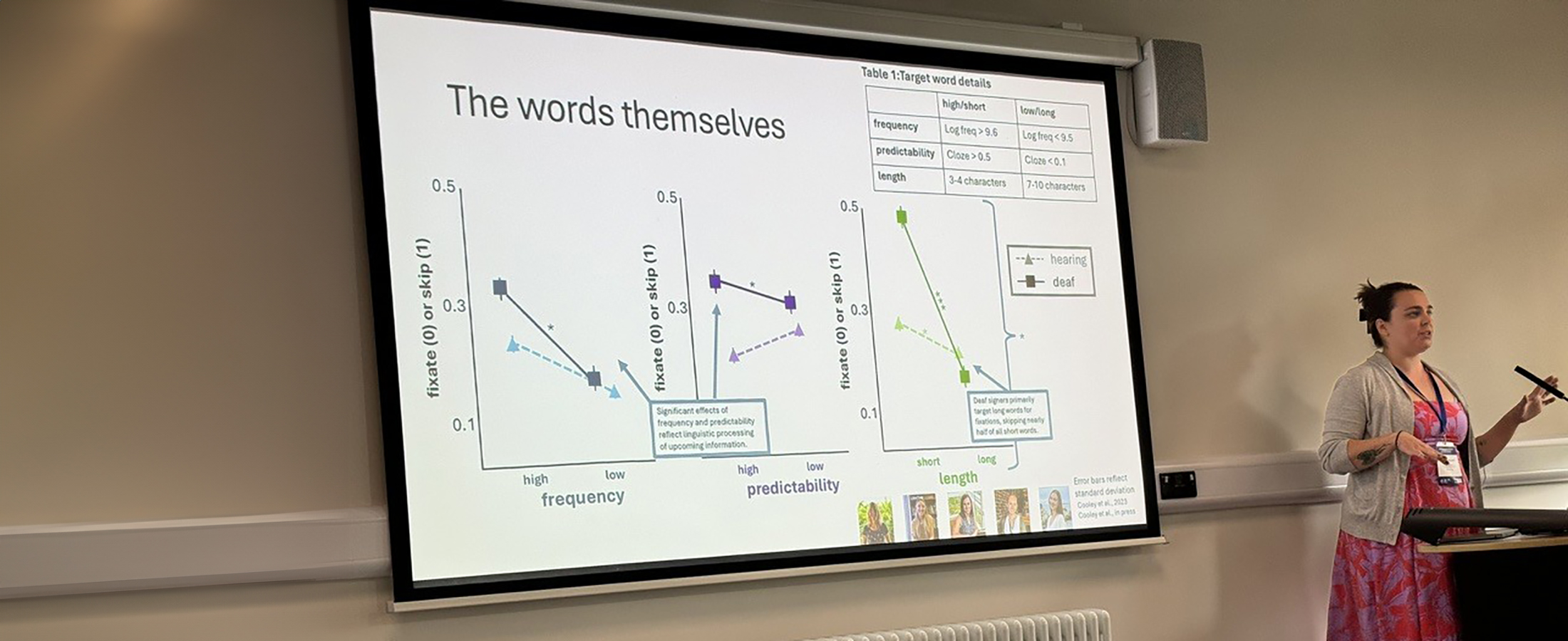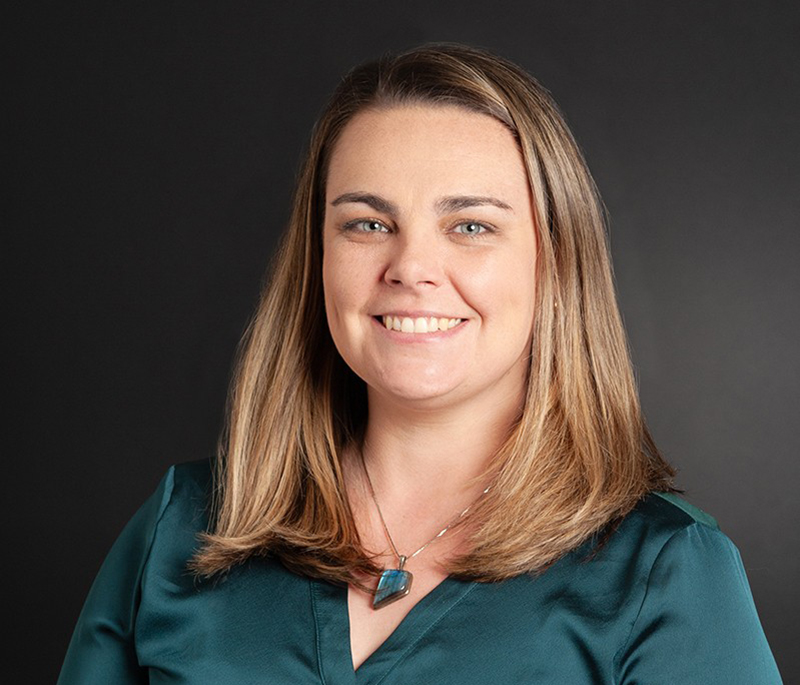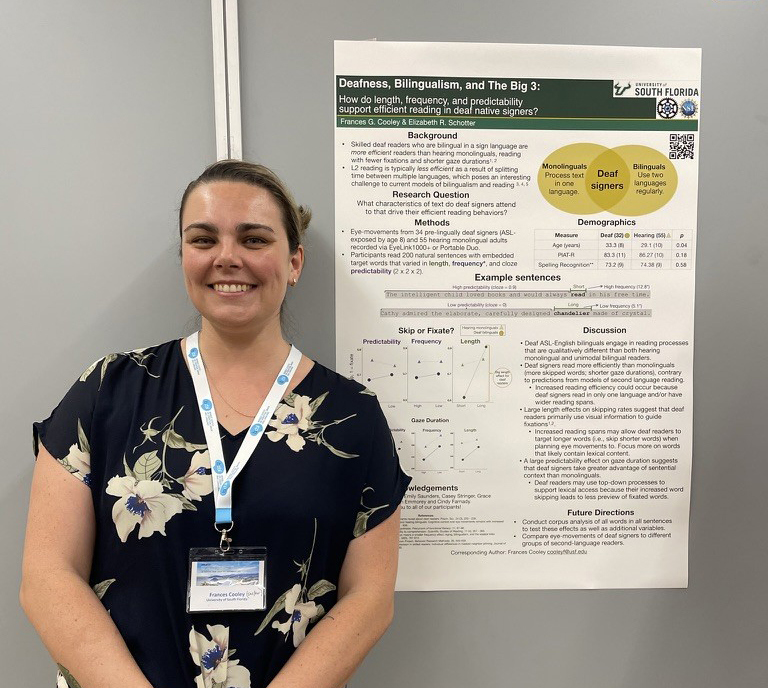Reading and Deafness (RAD) Lab


RAD Lab
Presenting at ECEM 2024 in Maynooth, Ireland
Reading is RAD! 
The Reading and Deafness (RAD) Lab, led by Assistant Professor Dr. Frances Cooley, focuses on understanding how deaf and hard-of-hearing (DHH) children and adults develop reading skills. Reading is crucial for educational and professional success, yet DHH students in the U.S. consistently show lower reading levels, indicating that current language and educational practices may not meet their needs. Our lab uses eye-tracking, behavioral language testing, and advanced statistical modeling to examine the cognitive processes behind successful reading in individuals who learned American Sign Language (ASL) before or after acquiring reading skills. Our ultimate goal is to inform early language and educational practices for DHH children to optimize literacy acquisition for educational success.
We are actively seeking research participants and passionate researchers to join our team! For more information, contact Dr. Cooley at fgcdls@rit.edu.
Research Overview
Reading is a complex cognitive process that requires a reader to integrate visual and linguistic information to efficiently and accurately extract meaning from text. Much of early schooling focuses on instructing children how to read, then pivots to children reading to learn. Reading is also necessary to communicate with others in a digital age and for independence during daily life. As such, the ability to read is essential for academic and professional success. In my research, I assess reading behaviors of deaf readers from strengths-based and bilingualism perspectives to understand the strategies that underlie skilled reading in this population. The ultimate goal of this line of research is to influence language and educational practices for deaf students to ensure we are meeting the needs of this underserved and understudied population.
Publications
Cooley, F. G., Saunders, E., Sinclair, G., Stringer, C., Emmorey, K., & Schotter, E.R., (in press). Deaf readers’ increased reliance on word length and predictability, but not frequency, to support reading efficiency. Journal of Experimental Psychology: Language, Memory, and Cognition.
Schotter, E.R., Stringer, C., Cooley, F.G., Saunders, E., Sinclair, G., & Emmorey, K. (2024). The perceptual and word identification spans in reading: Evidence from deaf and hearing adults. Journal of Experimental Psychology: General.
Stringer, C., Cooley, F. G., Saunders, E., Emmorey, K., & Schotter, E.R. (2024). An enhanced leftward word identification for deaf readers. Quarterly Journal of Experimental Psychology
Cooley, F. G. & Quinto-Pozos, D. (2023). Examining speech-based phonological recoding during reading for adolescent deaf signers. Journal of Experimental Psychology: General, 152 (7), 1995-2007.
Quinto-Pozos, D. & Cooley, F. G. (2020). A developmental disorder of signed language production in a native deaf signer of ASL. Languages: Atypical Speech, Language, and Communication Development, 5 (40).
Shield, A., Cooley, F. G., & Meier, RP. (2017). Sign language echolalia in deaf children with Autism spectrum disorder, Journal of Speech, Language, and Hearing Research, 60, 1622-1634.
Contact

Frances G. Cooley
Assistant Professor of Psychology
Office: LBR 06-2228
Email: fgcdls@rit.edu
BA: Brain and Cognitive Science, American Sign Language from University of Rochester
MA/PhD: Linguistics, University of Texas at Austin
Postdoctoral fellowship: Psychology, University of South Florida with Dr. Liz Schotter in the EMAC Lab
Curriculum Vitae (CV)



